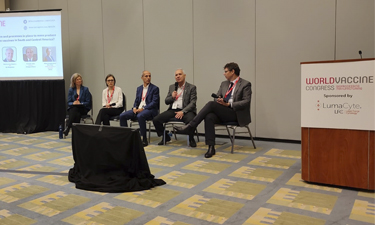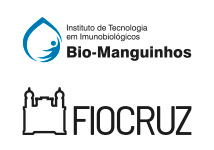
Between April 3rd and 6th, Bio-Manguinhos/Fiocruz has participated in the World Vaccine Congress 2023. Held in Washington, in the United States, the event features dozens of panels and round tables on the most diverse topics related to the universe of immunizers, is one of the main vaccine conferences in the world, bringing together hundreds of speakers and experts in a unique networking opportunity.
Mauricio Zuma, director of Bio-Manguinhos, participated in the panel on the infrastructure and processes for the mass production of vaccines in South and Central America, defending that it is necessary to strengthen the productive capacity of the region, emphasizing the need to explore the competences specific areas in a complementary way, given the need for high investments in productive training, and the contribution of technology transfer processes to training skills and establishing infrastructures.
“Technology transfer provides contact with new platforms and new knowledge, allowing us to develop new capabilities”, evaluates Zuma. “It is a very difficult process, as we need to have experience and facilities that are compatible with the protractor, in order to be able to absorb that technology”, he explained.
The technology transfer of the Covid-19 vaccine from the pharmaceutical company AstraZeneca to Bio-Manguinhos was also highlighted in the panel, due to the record time in which it was completed, and also relied on strong joint work between the institute and Brazilian National Regulatory Agency (ANVISA), through the process of continuous submission of information packages.
Zuma also highlighted that Brazil has a different situation from other Latin countries, as it has two major government institutions producing immunizers: Fiocruz and Butantan.
Also took part in the debate the Director of Health Systems and Services at PAHO/WHO, James Fitzgerald; the director of SINERGIUM Biotech, Fernando Lobos; and ANVISA's specialist in Health Regulation and Surveillance, Maria Fernanda Reis e Silva Thees. The panel was moderated by the director of Manufacturing and Chemical Controls at the Bill & Melinda Gates Medical Research Institute, Piper Trelstad.
Jornalist: Thais Christ
Image: Denise Lobo


